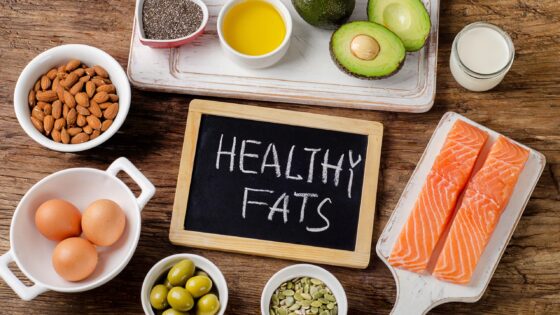
Knowing the difference between good and bad fats can help you make informed choices about what you eat, which can have a significant impact on your overall health. For years, fat has been demonized as the culprit behind weight gain, heart disease, and other health problems. But not all fats are created equal. In fact, some types of fat are necessary for good health, while others are detrimental to our well-being. In this article, we’ll explore the different types of fats you need to know about.
Saturated Fats
Saturated fats are commonly found in meat, dairy products, and tropical oils, such as coconut and palm oil. These fats are solid at room temperature and have long been linked to heart disease because they raise your LDL (bad) cholesterol levels. However, not all saturated fats are created equal. For example, some studies have shown that the saturated fat in whole-milk dairy products may not be as harmful as previously thought. Generally speaking, it’s best to limit your intake of saturated fats and opt for healthier options whenever possible.
Trans Fats
Trans fats are artificially created by adding hydrogen to liquid vegetable oils, a process called hydrogenation. This turns the liquid oil into a solid, making it ideal for use in processed foods like baked goods, fried foods, and snack foods. However, trans fats are incredibly harmful to your health, raising your LDL (bad) cholesterol levels and lowering your HDL (good) cholesterol levels. Avoiding trans fats altogether is the best course of action, as they offer no nutritional value and pose a serious health risk.
Polyunsaturated Fats
Polyunsaturated fats are found in nuts, seeds, and vegetable oils, such as canola, sunflower, and soybean oil. These fats are “good” for your heart and can help lower your LDL (bad) cholesterol levels. However, it’s important to note that not all polyunsaturated fats are created equal. Omega-3 fatty acids, which are found in fatty fish like salmon, are especially beneficial to your health and can help reduce inflammation in your body.
Monounsaturated Fats
Monounsaturated fats are found in nuts, seeds, and vegetable oils, such as olive and avocado oil. These fats are also “good” for your heart and can help lower your LDL (bad) cholesterol levels. Additionally, they provide other benefits, such as reducing inflammation and improving insulin sensitivity. Studies have shown that substituting dietary monounsaturated fat for saturated fat is associated with increased daily physical activity and resting energy expenditure.
Conclusion:
In conclusion, not all fats are created equal. Saturated and trans fats should be limited or avoided altogether, as they pose significant health risks. Polyunsaturated and monounsaturated fats, on the other hand, are beneficial to your health and can even help lower your risk of heart disease. Incorporating healthy fats into your diet, such as those found in fish, nuts, and vegetable oils, can be a smart and delicious way to support your overall well-being. Remember, it’s all about balance and making informed choices about the foods you eat. Visit www.FamilyFirstUrgentCareConroe.com for more health related articles.
- Urgent Care Myths Debunked: What You Really Need to Know - November 21, 2024
- Behind the Scenes: A Day in the Life of an Urgent Care Professional - November 7, 2024
- When to Choose Urgent Care Over the ER: A Quick Guide - October 23, 2024



